Next Avenue Picks the 6 Best New Personal Finance Books
They'll help you take control of your money and plan for retirement
There are two problems with many personal finance books. One, they’re dull. Two, they often tell you what you already know or suspect. So it’s refreshing when new ones come along that are actually interesting reading and helpful. Here are my six favorites from the past year:

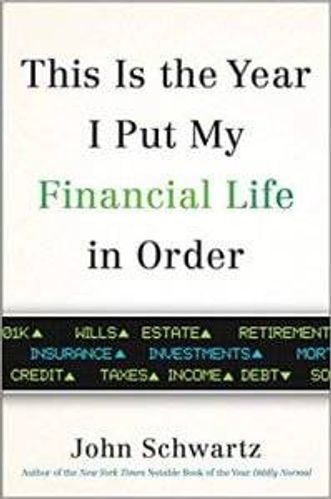
This Is the Year I Put My Financial Life In Order by John Schwartz
Odds are, you wouldn’t expect a personal finance book by an acclaimed New York Times science writer to be funny, let alone instructive. But this one is both. When he’s not informing Times readers about climate change, Schwartz weathers the world of money with hysterical columns.
In this book, he takes you by the hand showing you how, at 59, he spent (roughly) a year learning the basics of everything from investing to insurance to estate planning. (Did I mention he nearly went bankrupt a few decades earlier?) Because he’s a Times reporter, Schwartz was able to learn from some giants, such as Vanguard founder John Bogle, and conveys their best advice.
Bogle’s tip for Schwartz about investing in mutual funds for retirement was about monitoring their performance: “Don’t peek! That’s one of my most important rules.” And for those in their 50s who haven’t been saving for retirement and think it’s too late to start, Bogle advised: If you can put away 15 percent of your income “you’ll get part of the way there, and you’ll have some kind of nest egg when you get through. Doing nothing provides an absolute guarantee that you’ll wind up with nothing.”
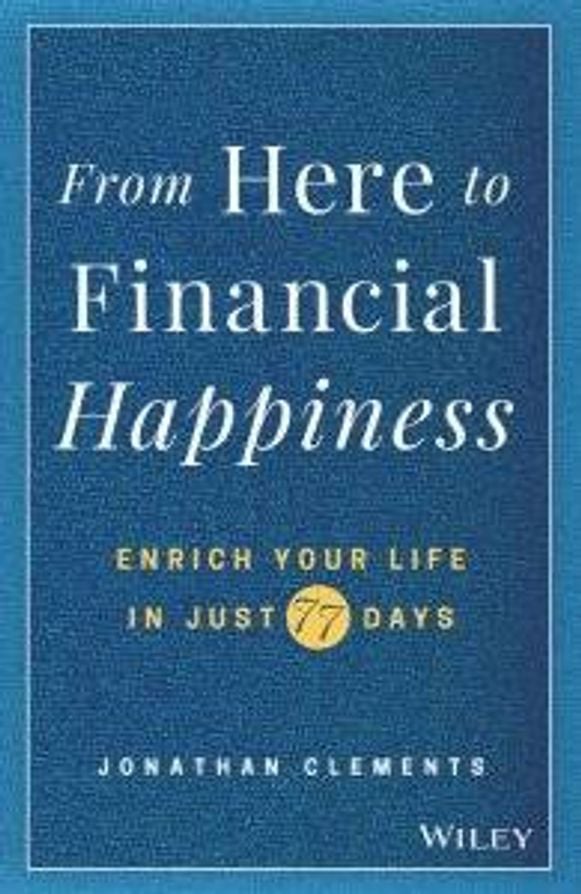
From Here to Financial Happiness by Jonathan Clements
In his new book, the longtime Wall Street Journal personal finance columnist and current Humble Dollar blogger maintains you can build a happier, more prosperous life by spending five or 10 minutes a day for 77 days. That sounds like a TV weight-loss come on. But Clements is to be believed because he provides sensible financial advice in bite-size pieces (okay, maybe it is a little like weight loss).
Clements isn’t saying you can achieve financial independence in 77 days. He’s making the case that in 77 days you can figure out where you want to go financially and what it’ll take to get there. Take the journey; you have the time.
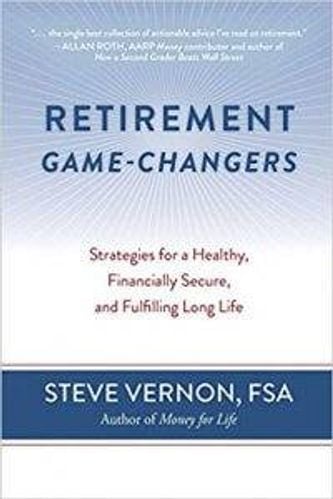
Retirement Game Changers: Strategies for a Healthy, Financially Secure, and Fulfilling Long Life by Steve Vernon
This author brings impressive credentials to his subject: he’s an actuary, a retirement adviser, a research scholar at the Stanford Center on Longevity and a columnist for CBS MoneyWatch. But what I like best about Vernon is that he has taken the time to sort through a truckload of financial formulas to come up with the ones most likely to help you retire comfortably.
He wisely divides the book into four chunks: Prepare, Secure, Engage and Evaluate. This way, you can first understand how to get ready to make a retirement plan, then put one together, then take care of the other parts of your financial life (from getting the right health insurance to finding the right place to live to leaving a legacy) and finally know how to track your progress with what Vernon calls a “Retirement Reality Check.”
To me, this book truly is a game changer for people eager to get a fix on retirement and fix what’s out of line.
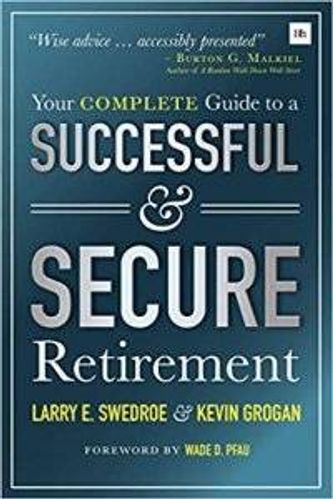
Your Complete Guide to a Successful & Secure Retirement by Larry E. Swedroe and Kevin Grogan
This book just came out this week and it’s mostly a straightforward (no laughs here), slightly dense manual to invest for retirement. That makes sense, since Swedroe is director of research for Buckingham Strategic Wealth and the BAM ALLIANCE. His colleague Grogan, a Chartered Financial Analyst and Certified Financial Planner, is director of investment strategy for Buckingham Strategic Wealth and The BAM ALLIANCE. Both have written other smart money books, too, sometimes together.
But buckle in. The authors start off by warning readers about the “four horsemen of the Retirement Apocalypse” — history high stock valuations; historically low bond yields; increasing longevity and the risks of long-term care. They then follow this with the nine financial planning errors to avoid. Once you get past all this, though, you’ll learn what to do right and how to avoid a personal financial apocalypse.
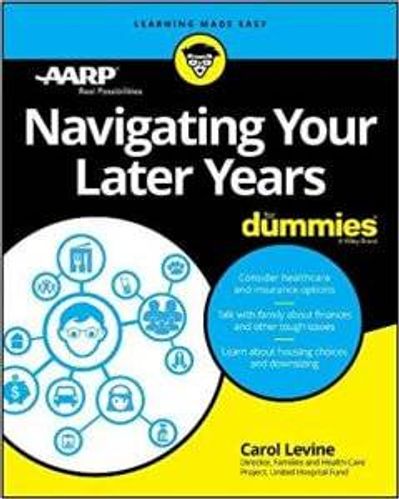
Navigating Your Later Years for Dummies by Carol Levine and AARP
If Swedroe and Grogan take a hardnosed approach to retirement planning, Levine — director of the Families and Health Care Project of the United Hospital Fund — provide the reverse. Levine, a Next Avenue Influencer in Aging and caregiving expert, zeroes in on the key financial concerns in retirement other than investing well: where to live, understanding Medicare and Medicaid, paying for long-term care, the basics of estate planning, and managing your health care.
My two favorite parts: 1) her smart advice for specific groups of people: LGBT older adults, veterans and family caregivers and 2) “The Part of Tens,” where Levine explains the ten myths of aging and future care (which Next Avenue excerpted) and ten resources with state-by-state information. One smart tip for long-distance family caregivers: “Make your visits productive by planning ahead to take care of priority items like visiting doctors, shopping for essentials and checking for safety hazards.
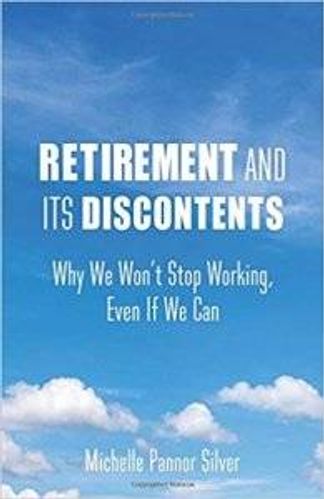
Retirement and Its Discontents: Why We Won’t Stop Working, Even If We Can by Michelle Pannor Silver
Yes, the title is a downer. But the book itself, by a University of Toronto sociologist, is provocative and guaranteed to make you spend time thinking of how you can best transition to retirement. That’s because the people Silver interviewed for her research are ones who concede they didn’t prepare themselves mentally or socially for retirement and are now trying to make amends.
The retirees featured are former doctors, CEOs, professors and homemakers. Some chose to retire; others had retirement thrust upon them. Try not to do what they did and you may well avoid having a discontented retirement.


